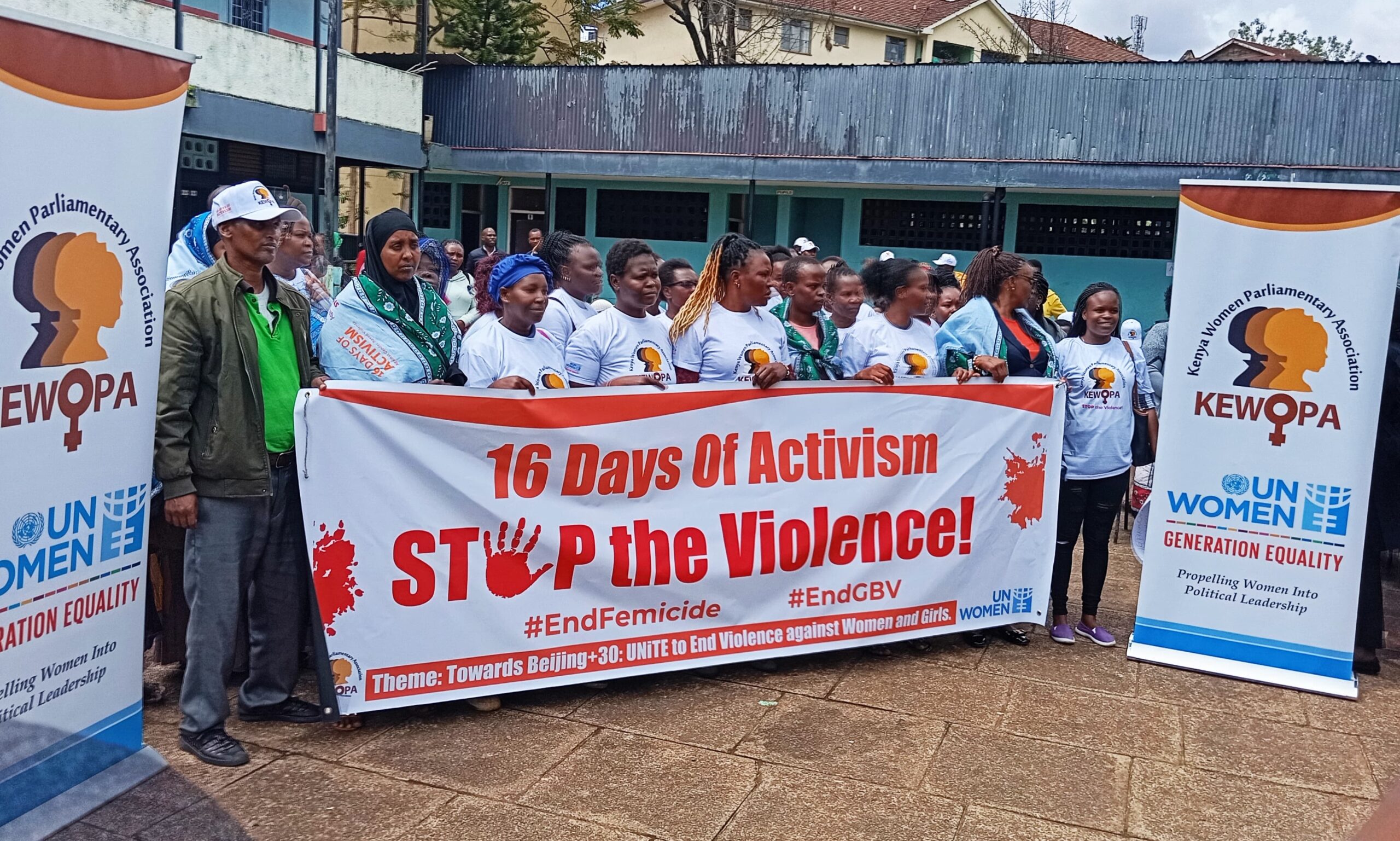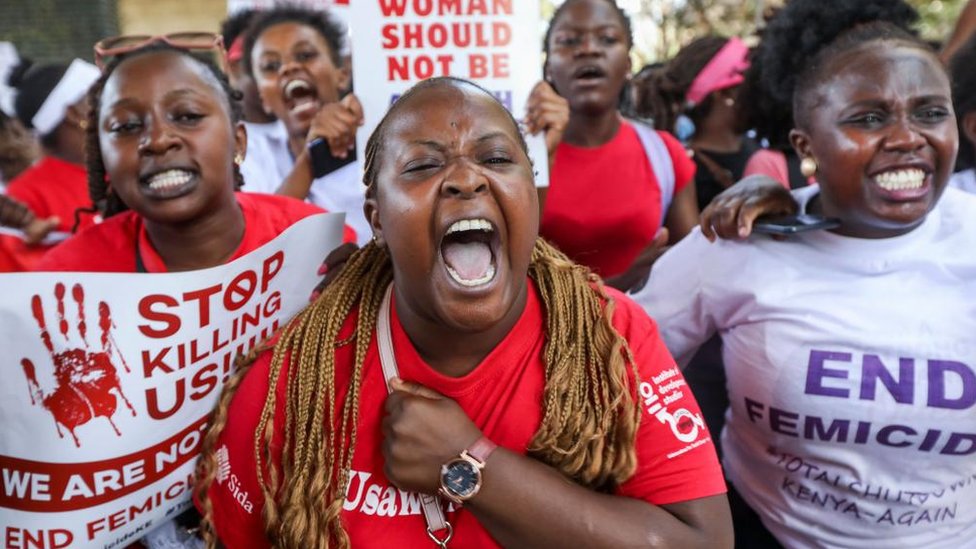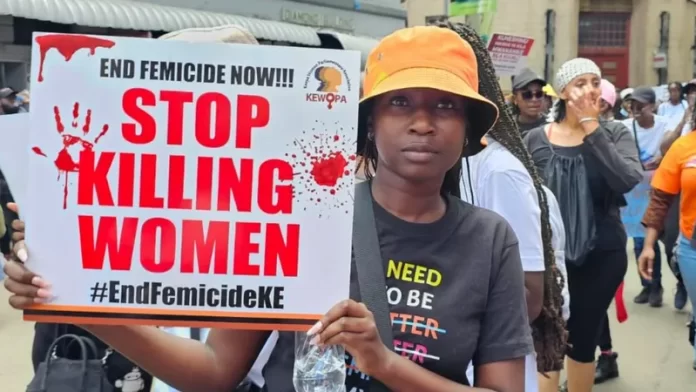By Nyambura Kamau
Nairobi, Kenya: The 2024 campaign for the 16 Days of Activism Against Sexual and Gender-Based Violence (GBV) 2024 concludes today, but the fight for women’s rights and gender equality continues.
Under the theme Unite! To prevent violence against women and girls, key messages in the campaign have emphasized on the importance of awareness and firm action to curb the vice that adversely affects the lives of women and girls.
The messages also stressed on the need for change, putting survivor-centred solutions at the forefront to deal with the root causes of GBV such as deep-rooted cultural practices, socio-economic inequalities and climate change.
According to the Kenya Demographic and Health Survey 2022, 45% of women and girls aged 15-49 years have faced physical and sexual violence from their partners at least once during their lives.
A recent report by CREAW-Kenya also indicates that more than 3,800 cases of gender-based violence were reported in 2022, and out of these cases, 2,985 were women. The World Health Organization (WHO) paints an even grimmer picture, stating that one in three women worldwide will experience some form of GBV in their lifetime. Alarmingly, even boys are not spared, with 18% of young boys at risk of sexual or gender-based violence.
These figures represent more than just numbers—they reflect the experiences of real people. In informal settlements such as Kibera and Mathare, overcrowding and poverty worsen the already difficult lives of women and girls. Many face the grim reality of having nowhere to turn to for help.
In rural areas, deeply-entrenched cultural practices and lack of jobs keep survivors tied to their abusers. These survivors endure cruel double victimization; the physical and psychological trauma of violence, aggravated by stigma, isolation, and fear of reporting the abuse.
The impact of GBV goes beyond the immediate harm as it leaves lifelong scars on the physical, mental and emotional health of its survivors.

As the conversation around sustainable solutions to gender-based violence intensifies, one approach that may address the problem is establishment of safe houses for survivors. These spaces offer more than shelter because they provide counseling, medical care, and a support system to help survivors heal and rebuild their lives.
Yet, despite the success of such shelters in many parts of the world, the country has not embraced the model fully because of inadequate funding, insufficient space and lack of political goodwill.
Currently, most safe houses are run by Non-Governmental Organsiations (NGOs). While they do commendable work, they are often overwhelmed by demand. In counties such as Garissa and Turkana, survivors have very few or no access to shelters, leaving them in dire situations.
Despite the challenges, there are bright spots. Initiatives such as the Gender Violence Recovery Centre in Nairobi, Tumaini Girls Centre in Meru and Solidarity with Women in Distress in Mombasa provide survivors with the much needed support, including temporary shelter, medical care, and counseling.
In addition, counties such as Mombasa and Kisumu have pioneered gender desks in police stations, enabling survivors to report cases and get assistance. These initiatives demonstrate that safe houses can be more than just places to stay—they can be holistic recovery centres, addressing the full spectrum of a survivor’s needs.
While these stories are inspiring, they remain isolated. The extent of gender-based violence (GBV) in the country requires a response that goes beyond small-scale, individual efforts. It requires a coordinated approach involving government agencies, the private sector, and civil society.

Safe houses play a crucial role in this response. They provide survivors with a sanctuary to escape their abusers and begin the long journey of recovery. In addition to offering counseling, medical care, and other essential services, many safe houses also provide vocational training and economic empowerment programmes, equipping survivors with the skills to become self-sufficient and rebuild their lives.
In the long term, these shelters serve as more than just temporary refuges. By connecting survivors with legal aid services, safe houses empower them to seek justice without fear of retaliation.
They also challenge the cycle of violence, helping survivors heal and break free from abusive relationships. However, to achieve this, huge investment and commitment are needed.
The establishment of safe houses faces several challenges, including inadequate funding, cultural resistance, and weak enforcement of existing laws. However, these obstacles are huge, but they are not insurmountable.
One solution is for counties to allocate resources for the construction and operation of safe houses, as required by law.
Public-private partnerships could be leveraged to ensure funding sustainability, while sensitisation campaigns targeting local leaders and communities could help combat stigma and promote the acceptance of safe houses.
Clear guidelines for the management of these shelters would ensure they remain secure, transparent, and survivor-focused. Furthermore, collecting reliable data on the prevalence of GBV and the impact of safe houses can bolster advocacy efforts.
The time to act is now. The government must recognize that safe houses are not a luxury but a necessity in the fight against gender-based violence (GBV). Civil society and private sector organizations must also step up, pooling resources to expand safe houses and other support services nationwide.
Safe houses offer more than just shelter; they symbolize the restoration of dignity, hope, and the fundamental right to live free from fear. By prioritizing these spaces, the country can make significant progress in ending GBV and creating a society where every survivor has the chance to heal, grow, and thrive.
Strengthening survivor support systems—through the expansion of safe houses and ensuring access to medical care, psychological support, and legal aid—is one of the most effective ways to tackle GBV. With a unified commitment, we can provide survivors with not just a safe haven, but also a pathway to justice, healing, and ultimately, freedom.
The writer is a gender advocate and can be reached on Serahnk@gmail.com














